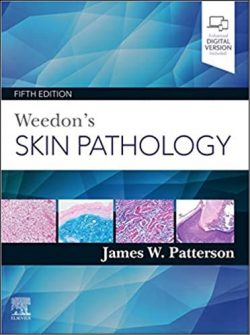The book describes the current management of fecal incontinence from an advanced practice nursing perspective. It fills a gap in nursing knowledge promoting and showcasing the expertise and significant contribution of advanced practice nurses whose role is so important in the health care system. Authors’ objectives are to disseminate information about evidenced-based nursing care for the incontinent patient to improve outcomes and quality of life as well as to instruct nurses involved in continence care to practice at a high quality level.
The book is structured in chapters, starting by explaining fecal incontinence and its impact on quality of life. The second chapter discusses advanced practice continence nursing. The epidemiology of fecal incontinence is reviewed to provide an appreciation of the scope of the problem. Normal defecation and mechanisms to ensure continence are reviewed to improve understanding of the alterations resulting in fecal incontinence. The next chapters focus on assessment, diagnosis and management of fecal incontinence in various patient groups which parallels the delivery of care. Since surgery is a treatment option in some cases, a chapter explains surgical approaches and the postoperative nursing care. As skin damage is the most common complication of fecal incontinence there is a chapter about management of these associated problems. The last chapter addresses managing fecal incontinence in the patient with urinary continence also. Practice related chapters include a case study. All chapters highlight key information in a box or table.
The intended readers are international advanced practice nurses who care for patients with incontinence as well as continence nurse specialists practicing at a general level. General nurses interested in continence care might also be interested in reading the book. Other disciplines who are part of the healthcare team may be interested in learning more about role of the advanced practice nurse.
Donna Z. Bliss, PhD, RN, FGSA, FAAN, is a Professor at the University of Minnesota School of Nursing in Minneapolis, MN, and holds the Professorship in Nursing Research of the School of Nursing Foundation. She is also a Horace T. Morse-Alumni Association Outstanding Teacher. Professor Bliss’ research focuses on assessing, preventing, and managing incontinence and incontinence associated skin damage. She has 25 years of research experience funded by federal, foundation, and corporate grants and more than 90 publications on these topics.
Prof. Bliss received her BSN from Villanova University, Villanova, Pennsylvania and her Masters and PhD degrees from the University of Pennsylvania in Philadelphia, PA. She started her clinical experience in critical care nursing and has specialized training in care of older adults. Prof. Donna Bliss is a Fellow of the American Academy of Nursing and the Gerontological Society of America. She is the chair of the Nursing Committee of the International Continence Society (ICS). She chaired the committee of the 6th International Continence Consultation, reviewing the assessment and conservative management of fecal incontinence and was a contributor to the review of managing incontinence with products and devices. She is an editor of the Incontinence Group of Cochrane Systematic Reviews and on the editorial board of Applied Nursing Research. She recently completed ten years of service as the Director of the Center for Clinical Investigation of the Wound Ostomy Continence Society.
The book describes the current management of fecal incontinence from an advanced practice nursing perspective. It fills a gap in nursing knowledge promoting and showcasing the expertise and significant contribution of advanced practice nurses whose role is so important in the health care system. Authors’ objectives are to disseminate information about evidenced-based nursing care for the incontinent patient to improve outcomes and quality of life as well as to instruct nurses involved in continence care to practice at a high quality level.
The book is structured in chapters, starting by explaining fecal incontinence and its impact on quality of life. The second chapter discusses advanced practice continence nursing. The epidemiology of fecal incontinence is reviewed to provide an appreciation of the scope of the problem. Normal defecation and mechanisms to ensure continence are reviewed to improve understanding of the alterations resulting in fecal incontinence. The next chapters focus on assessment, diagnosis and management of fecal incontinence in various patient groups which parallels the delivery of care. Since surgery is a treatment option in some cases, a chapter explains surgical approaches and the postoperative nursing care. As skin damage is the most common complication of fecal incontinence there is a chapter about management of these associated problems. The last chapter addresses managing fecal incontinence in the patient with urinary continence also. Practice related chapters include a case study. All chapters highlight key information in a box or table.
The intended readers are international advanced practice nurses who care for patients with incontinence as well as continence nurse specialists practicing at a general level. General nurses interested in continence care might also be interested in reading the book. Other disciplines who are part of the healthcare team may be interested in learning more about role of the advanced practice nurse.
Endorsed by the International Continence Society (ICS)





